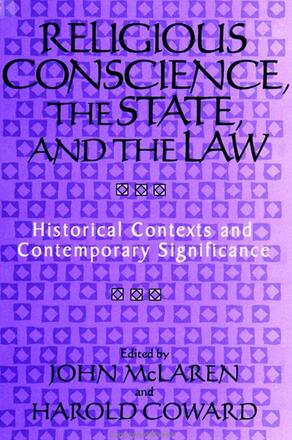
Religious Conscience, the State, and the Law
Historical Contexts and Contemporary Significance
Alternative formats available from:
Examines claims to freedom of religion by minority, unorthodox faith groups and how these challenges to the state and the law have contributed to the development of civil rights discourse and practice.
Description
This book examines the history and significance of religious freedom claims by minority, unorthodox faith groups and the contribution their challenges have made to the development of rights discourse and practice in North America.
John McLaren is Professor of Law at the University of Victoria. He is the editor of, most recently, Essays in the History of Canadian Law, Vol. 6, British Columbia and the Yukon ( with H. Foster), and Law for the Elephant, Law for the Beaver: Essays in the Legal History of the North American West (with H. Foster and C. Orloff). Harold Coward is Director of the Centre for Studies in Religion and Society and Professor of History at the University of Victoria. He is the author of Pluralism: Challenge to World Religions and several books published by SUNY Press, among them Derrida and Indian Philosophy and, as editor, Traditional and Modern Approaches to the Environment on the Pacific Rim.
Reviews
"Religious Conscience, the State, and the Law raises interesting questions and sheds new light on the issues of toleration. The case studies that are its main focus are absolutely fascinating, and they provide a range of situations with which anyone thinking about the complex issues of toleration and multiculturalism must deal. For that reason alone, this volume is invaluable. Even the more familiar cases are put in their historical contexts in such a way that they take on new meanings. Anyone interested in issues of religious toleration should want to understand the cases discussed here, and they will find the discussions extraordinarily useful. " — Richard H. Dees, Saint Louis University
"The juxtaposition of both specific and general cases is enlightening. The fact that the book covers Canadian, European, United States, and Native American cases provides a sense of comparison of this issue which is crucial to civil liberties, religion, and political science. The authors know their material and provide some clear insight into the general issue. " — Robert N. Minor, author of The Religious, the Spiritual, and the Secular: Auroville and Secular India